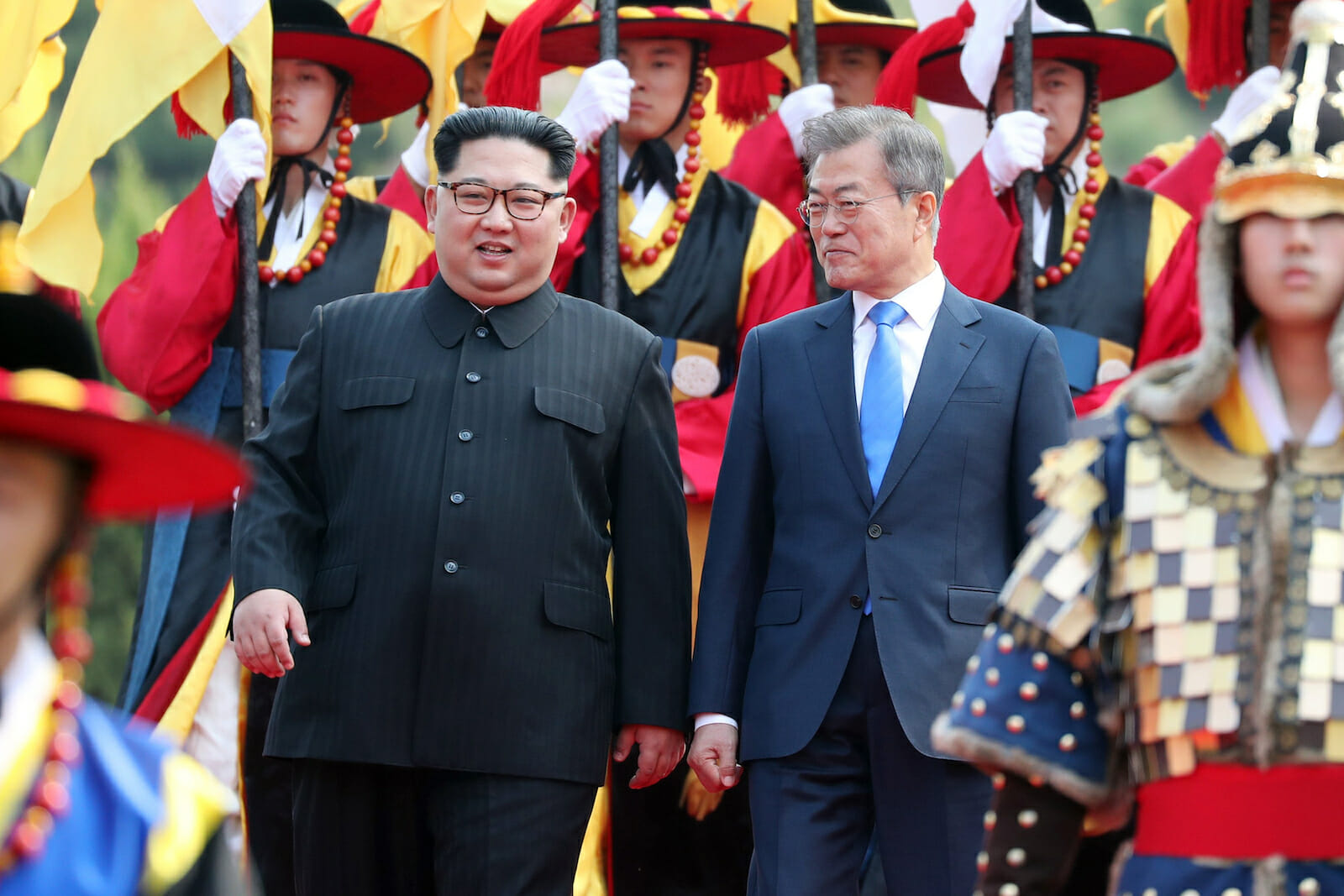
The Summit Aftermath: South Korea Must do More
The abrupt end of the second summit between the United States and North Korea has led many analysts to label President Trump’s diplomacy attempt a failure. Instead of a glorious signing ceremony, Trump decided to walk away from the deal, a preferred strategy of Trumpian deal-making. However, a real failure would have been a return to nuclear brinkmanship, or worse, offering major concessions to Kim Jong-Un without getting any reciprocal returns. By walking away from the negotiating table, President Trump is doing what he does best: shifting the burden back on our allies to do the dirty work while maintaining a perception of strength. In the coming months, South Korea will now return to its role as the arbitrator between North Korea and the United States, with any future deal between President Trump and Kim Jong-Un will be brokered by Moon Jae-In.
In his 2018 New Year’s Day Speech, Kim Jong-Un signaled his willingness to work with South Korea to normalize relations between the two countries. This overture led to a joint Korean Winter Olympic team, with the divided nations walking under a flag of symbolic reunification. After this display of sport diplomacy, President Moon and Chairman Kim embraced at the 38th parallel, starting a new Inter-Korean dialogue. In this meeting, Kim expressed his willingness to meet with Trump, anointing Moon as an intermediary between the United States and North Korea. President Trump initially accepted Kim’s offer, but then dubiously canceled the first summit, leading to an emergency meeting between Kim and Moon. The emergency meeting was successful in reinstating the long sought after summit in Singapore. Although Trump and Kim hogged the spotlight, it was Moon who truly spearheaded the effort to make the meeting happen.
The second summit in Hanoi had high hopes of success. President Moon waited anxiously to hear the results, clearing his calendar of duties for the day, while also planning a special Inter-Korean cooperation statement on March 1st. However, impasse during the second summit revolved around the time-old question of which country would take the first step in diplomacy, deflating optimism that the 59-year old conflict would officially end. Historically, the United States’ position on lifting sanctions comes with the condition that North Korea must completely, verifiably, and irreversibly, denuclearize first. This proved to be the deal-breaker, forcing an abrupt end to the Hanoi summit, with no signing statement, leaving both camps empty-handed.
In President Trump’s press conference, Trump stated that North Korea demanded that the United States fully lift all sanctions before North Korea would identify all their nuclear-related sites. Trump was willing to walk away from this part of the deal, despite their receptive dialogue in front of the press only mere hours prior to the shocking news that talks would end early. The mutual distrust among the countries prevents either side from taking the necessary steps to resolve this dilemma and therefore requires a third-party actor to represent both sides in arbitration. South Korea under Moon Jae-In can become the arbitrator and lead to a historical breakthrough capitalized at future summits.
For South Korea to be successful, the United States needs to grant sanction waivers to South Korea. By publicly announcing that the United States encourages the development of closer economic ties between the North and the South, President Trump is signaling his intent to work in good faith for the benefit of both countries. Additionally, the United States gains first-mover advantage giving them the ability to demand that North Korea take reciprocal steps in the trust-building process.
Relations between North Korea and the United States remain at a standstill in the aftermath of the Hanoi summit. The future of relations between the two countries hinges on South Korea’s ability to maneuver and represent the United States interest in its future dealings with North Korea. For President Trump, this is just a continuation of one of his grand strategy tenants, allies doing more.

